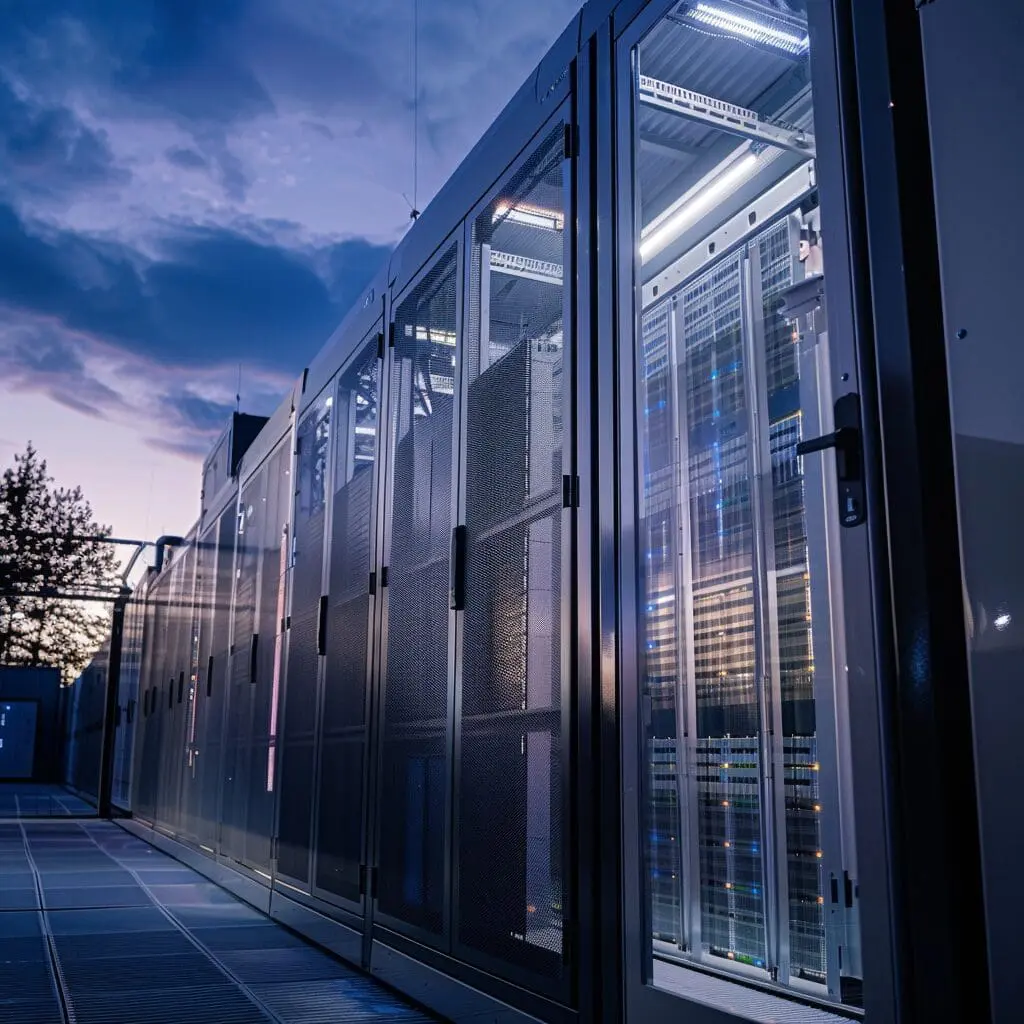

Microsoft has made a significant stride towards a more sustainable future with its $10 billion investment in renewable energy, highlighting its dedication to eco-friendly practices within the tech industry. This investment is a clear indication of how the company is addressing the increasing energy demands of the digital world, especially in areas like cloud computing and AI, with a keen focus on green data centres. This strategic move not only aims at making their data centres energy efficient but also sets a new benchmark for power usage effectiveness in the technology sector. By committing to match its electricity consumption with zero-carbon energy sources by 2030, Microsoft is prioritising the optimisation of its energy systems, ensuring its expansive data centres are powered by clean energy. This initiative underscores the tech giant’s role in fostering sustainable practices industry-wide, serving as a powerful example of how corporate entities can lead the charge in environmental stewardship. Microsoft’s approach demonstrates that integrating sustainable innovation with technological progress is feasible and encourages other companies to adopt energy-efficient measures in their fight against climate change.
The collaboration between Microsoft and Brookfield Asset Management, highlighted by an impressive $10 billion investment, transcends a mere financial deal; it heralds a significant shift towards green data centres within the tech sector. By acquiring 10.5 gigawatts of renewable energy, Microsoft is not just pledging to transform its data centres to consume less and leverage green data, but it’s also leading by example for the entire industry. This initiative, focusing on wind and solar power, confronts the dual challenges posed by the rising digital demand and the need for environmental sustainability. It demonstrates Microsoft’s commitment to measuring and optimising energy usage, ensuring their vast network of data centres progresses towards sustainable operations. This strategic move doesn’t just highlight a key moment in Microsoft’s journey towards sustainability but also serves as a pivotal encouragement for other corporations to measure energy usage and pivot towards a sustainable digital infrastructure rooted in green data.
Microsoft’s commitment to invest $10 billion in renewable energy represents a watershed moment for the data centre industry, reflecting a significant shift towards sustainability. This investment not only reinforces Microsoft’s position as a leader in adopting green energy practices but also establishes a critical benchmark for the entire sector, particularly in the realm of datacenter energy management. The initiative is a clear response to the increasing energy consumption in technology operations and the urgent need for environmental protection measures. By focusing on renewable resources, Microsoft is aiming to reduce the carbon footprint of its data centres, a move that is essential for the environmental sustainability of the tech industry. This effort is particularly relevant given the Environmental Protection Agency’s emphasis on reducing greenhouse gas emissions across all sectors, including technology. Moreover, the investment is likely to spur innovation in green technology, including artificial intelligence applications that can optimise energy use in data centres, thereby enhancing their efficiency and resilience. Microsoft’s bold move not only paves the way for a more sustainable future in tech but also signals a shift towards a model that balances technological advancement with environmental responsibility.
Microsoft’s deep dive into renewable energy is revolutionising the data centre landscape, leading to a significant shift towards green data centres. This move is a testament to Microsoft’s commitment to sustainable development, setting a new standard for how data centres consume energy and manage environmental impact. By incorporating large-scale renewable sources to fuel its vast network of data centres, Microsoft is significantly enhancing data centre energy efficiency and reducing the carbon footprint tied to digital data storage and processing. This shift not only aligns with the broader trend of prioritising environmental responsibility within the industry but also showcases the potential of sustainable practices to improve efficiency, reduce operational costs, and boost the reliability of cloud-based services. The initiative places Microsoft at the forefront of the drive towards carbon usage effectiveness in data centres, offering a powerful example for others in the industry of how technological advancement can go hand in hand with ecological conservation, thereby laying the groundwork for a sustainable digital infrastructure.
The evolving global business and environmental sustainability landscape highlights a crucial shift, emphasising the importance of green data centre practices. Microsoft’s commitment to renewable energy and sustainable operations, including low power servers and a reduction in carbon emissions, sets a powerful example for the corporate world. By aligning with the Environmental Protection Agency’s guidelines and focusing on the use of electric power from renewable sources, this tech giant not only bolsters its sustainability credentials but also demonstrates the significant advantages of weaving environmental objectives into corporate strategies. Microsoft’s pioneering efforts in reducing carbon emissions and investing in electric power for low power servers underline the role of sustainability in bolstering a company’s resilience, sparking innovation, and unlocking new markets. The transition to sustainable practices, highlighted through initiatives like green data centres, transcends traditional corporate social responsibility by becoming a strategic necessity for long-term success, competitive edge, and brand loyalty. Companies aiming for future prosperity must see the business value in sustainability, taking cues from Microsoft’s approach to navigate their way to more environmentally friendly and sustainable operations.
In today’s digital era, the concept of environmental sustainability has transitioned from a mere compliance requirement to a key driver of competitive advantage, with ‘green data centre energy efficiency’ playing a pivotal role. Microsoft’s significant investment in renewable energy is a testament to this evolution, showcasing how a commitment to ‘energy consumption’ reduction and ‘power usage effectiveness’ can catapult a company to market leadership while fostering technological innovation. This shift underscores a broader recognition within the tech industry of the critical link between sustainable practices and the creation of a resilient, future-proof business model. By focusing on renewable energy and integrating ‘sustainable design’ principles, Microsoft, alongside other tech giants, is leading the charge in redefining industry norms. Their efforts emphasise how aligning with the ‘Environmental Protection Agency’ standards and adopting ‘high pressure spray systems’ for cooling can not only bolster operational efficiency and cut costs but also align with the increasing consumer demand for eco-friendly products and services. This emphasis on sustainability, particularly in the realm of ‘green data centre energy efficiency’, marks a crucial shift where environmental stewardship is seen as central to both business success and technological progress.
In an era dominated by digitisation, Microsoft is leading the charge towards a sustainable future with its significant investments in renewable energy and technological innovation, particularly focusing on green data centres. The company’s commitment to transitioning its data centres to 100% renewable energy is a bold step in reducing its environmental impact and driving the tech industry towards green solutions. By addressing the high power consumption of data centres, Microsoft is pioneering the development of technologies that enhance energy efficiency. The innovative use of waste heat recovery systems and the implementation of heat pumps to reuse energy efficiently are key aspects of this strategy. Moreover, leveraging cold air for natural cooling and advocating for tax incentives to promote green practices in the tech industry, Microsoft is reshaping how data centres operate. This commitment not only exemplifies Microsoft’s dedication to environmental stewardship but also positions the company as a leader in pushing the technological frontier towards a more sustainable, innovation-driven future.
Microsoft’s push towards renewable energy and green data centres is creating a significant impact on the digital ecosystem, inspiring other companies to reconsider their energy consumption and environmental impact. This shift extends beyond the tech industry, as companies across various sectors recognise the importance of energy-efficient operations and sustainability. By pioneering the use of recycled materials, outdoor air, and evaporative cooling in their data centres, Microsoft has significantly increased the feasibility and benefits of green practices. These efforts have turned Microsoft into a beacon for the industry, illustrating that environmental stewardship can go hand in hand with business growth and innovation. The company’s initiative is a powerful example of corporate responsibility and serves as an influential blueprint for integrating sustainability into business frameworks, promoting a more eco-conscious and innovative digital landscape for future generations.
As businesses worldwide face growing environmental challenges and the global push towards carbon neutrality, they are increasingly adopting sustainable energy strategies to address their power consumption and reduce their environmental impact. Companies like Microsoft are leading the way by significantly increasing their commitment to renewable energy sources. This not only sets a benchmark for environmental stewardship with the establishment of green data centres but also offers a competitive edge in today’s market. By focusing on renewables, Microsoft not only addresses climate change but also reduces water usage and energy use in their operations, creating a resilient framework against the volatility of fossil fuel prices. This shift towards green data centre practices is crucial for companies looking to future-proof their operations, underscoring a commitment to the health of our planet and a strategic approach to the burgeoning green economy. The move towards sustainable energy, marked by a noticeable increase in the adoption of green strategies, is essential for enduring business sustainability and success. It urges firms to act promptly to secure a competitive and innovative advantage in the evolving business environment.

This website uses cookies to improve your experience. Choose what you're happy with.
Required for the site to function and can't be switched off.
Help us improve the website. Turn on if you agree.
Used for ads and personalisation. Turn on if you agree.
This website uses cookies to improve your experience. Choose what you're happy with.
Required for the site to function and can't be switched off.
Help us improve the website. Turn on if you agree.
Used for ads and personalisation. Turn on if you agree.